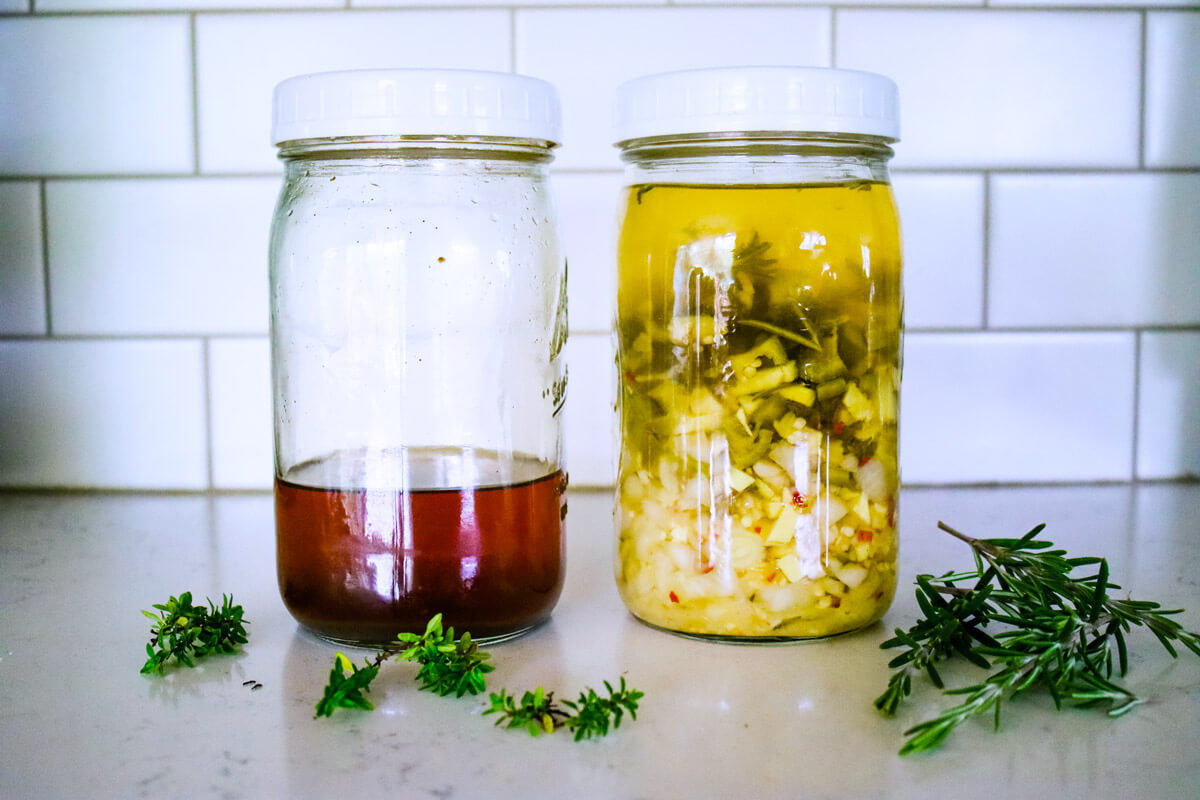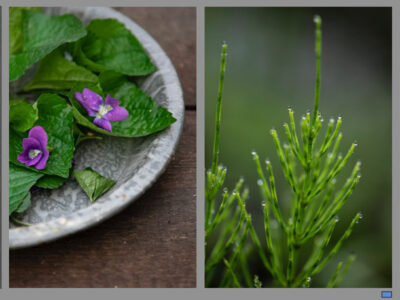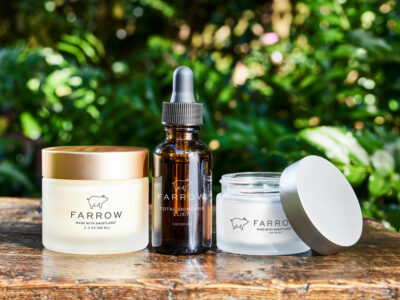Make this delicious and easy home remedy that helps ward off the cold and flu. With the flavor combinations of garlic, ginger, onion, and chilis, plus the sweetness of apple cider vinegar and honey, it’s a warming herbal remedy with a pleasantly sweet and spicy flavor.
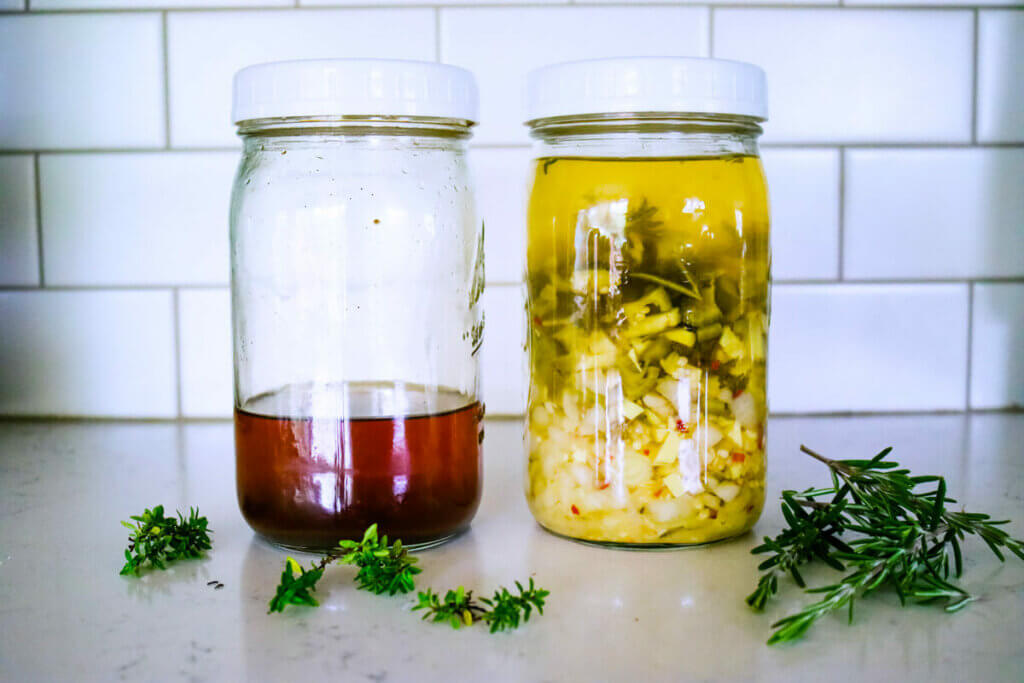
Fire cider is a long-held old fashioned remedy that is used to boost the immune system and to help aid the upper respiratory system.
🍞 Struggling With Sourdough?
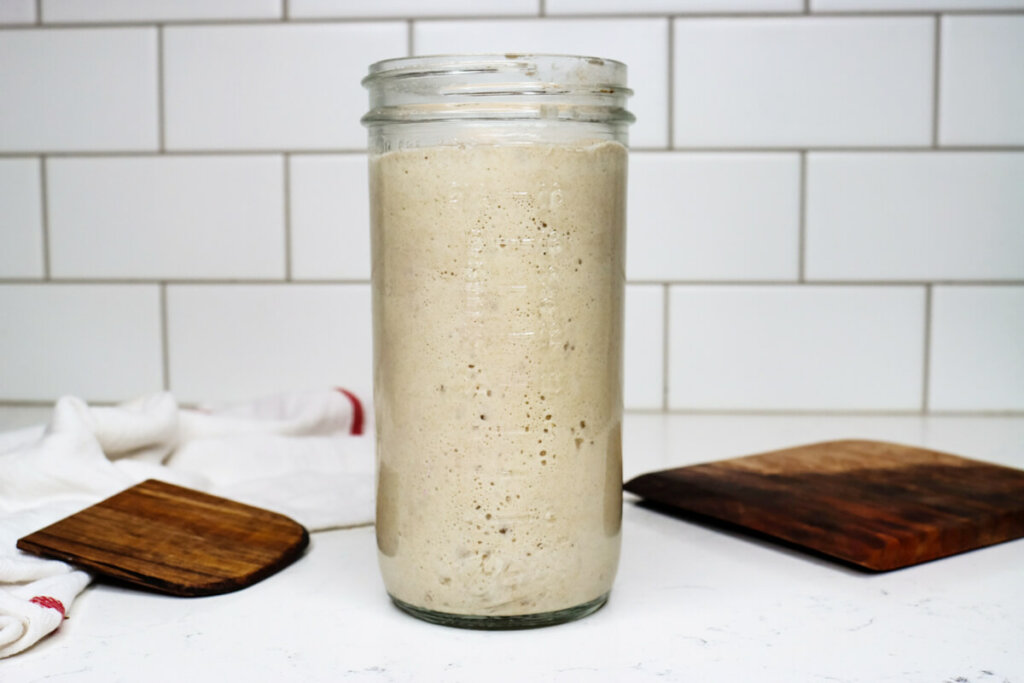
If your starter won’t take off, your loaves are dense and hard, or sourdough just flat-out overwhelms you…
👉 I’ll show you how to fix all of it.
Join my FREE workshop and learn how to make a bubbly, active starter—the right way, from Day One.
Natural Remedies Made Simple

Start your home apothecary with confidence—even if you’re brand new. Learn how to choose the right herbs for your body using the simple principles of herbal energetics.
Discover how warming, cooling, drying, and moistening herbs affect your body—so you can stop guessing and start making remedies that actually work.
It’s important to note that I am not a certified medical practitioner. This post is not intended to diagnose or treat but is for informational purposes only. Please contact your healthcare professional before introducing new herbal and natural remedies into your wellness routine.
Table of Contents[Hide][Show]
Why I Love Fire Cider
My favorite thing about fire cider (and many other herbal remedies) is that you can make it at home yourself, using ingredients you grew in your garden, or that you bought at the grocery store.
I always say medicine should start with the food we eat. This recipe is the perfect example of that! This fire cider is truly a powerhouse of a natural remedy.
This post includes an older Pioneering Today Podcast I did with Rosemary Gladstar (episode #177), in which we discussed the many health benefits of fire cider. I have since updated it with a YouTube tutorial that walks through exactly how to make this powerful remedy.
Rosemary Gladstar is a pioneer in the herbalist community and has paved the way for many to follow in her footsteps of modern herbalism. She’s internationally renowned for her technical knowledge and stewardship in the global herbalist community, has been learning, teaching and writing about herbs for over 40 years and is the author of eleven books. You can learn more about Rosemary on her website, The Science & Art of Herbalism.
Her book, Medicinal Herbs: A Beginner’s Guide to Herbal Remedies was the first book that I ever got back in the day when I started researching and learning more about herbs and using them in our home.
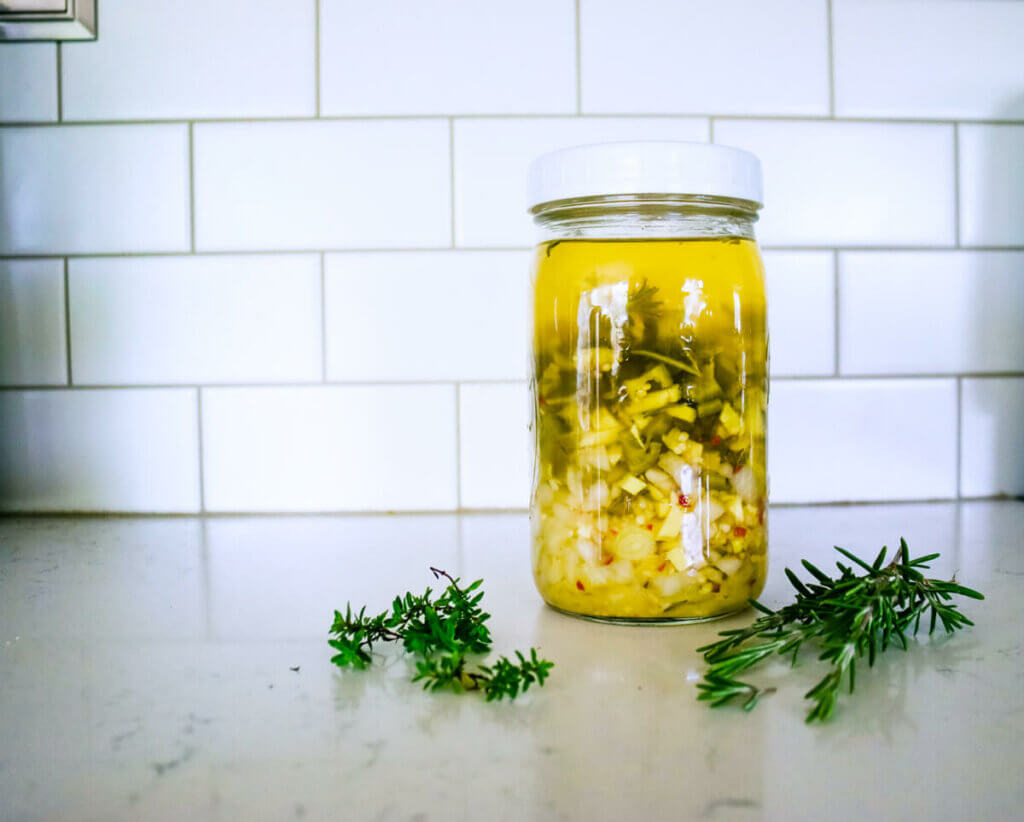
What Is Fire Cider
Rosemary shared in this podcast that when she lived on the Russian River in northern California, it was really cold and damp. People got lots of colds, bronchial problems, and circulation issues. So they decided to make this formula with something that was warm and decongesting to help with some of these issues, and the result was what we now call fire cider.
Fire Cider is both a tonic and medicine. It’s very effective for warming the body, mobilizing the immune system, and even just giving you a shot of energy.
It’s made with hot, fiery ingredients, but it’s also pretty tasty because of the honey and apple cider vinegar, which is what many people love about it. That and the fact that it is really simple to make and the ingredients were really common and easy to source.
So, fire cider quickly became very popular and sort of developed a life of its own.
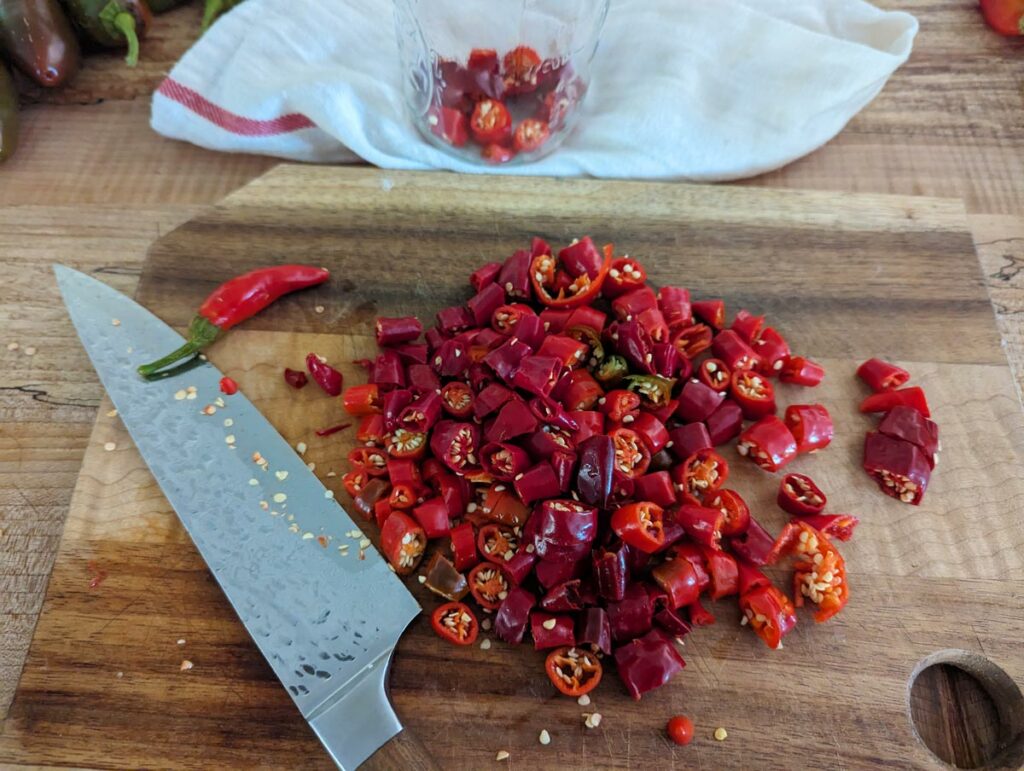
Fire Cider Benefits
Fire cider is an old-timey natural remedy to help boost the immune system but it really helps aid the sinuses when you come down with the sniffles and are congested. There are many variations of this recipe, most notably made popular by herbalist Rosemary Gladstar, and the beauty of it is you can make it your own based on what you have on hand.
Who Is Traditional Fire Cider For?
Rosemary shares in the podcast episode that sometimes fire cider is really helpful for people who have heartburn, but it also can agitate heartburn because of the spicy ingredients. It really depends on what the cause of your heartburn is.
Also, for someone with a hot constitution who just has a lot of heat in their body, like a really red tone, or maybe someone who’s prone to anger that sometimes core cooling remedies are better than the fire cider.
We always have to find those things that work best for us. But I do find it particularly good for people who live in a cold, damp region or have reoccurring bronchial issues.
This recipe also seems to be really helpful for people who get severe muscle cramps in their legs. And it’s also good for energy.
The garlic, ginger, and horseradish are all warming, stimulating, decongesting herbs, and all of those herbs really energize the body. But again, you need to try different things and see what works best for you because everybody is a bit different.
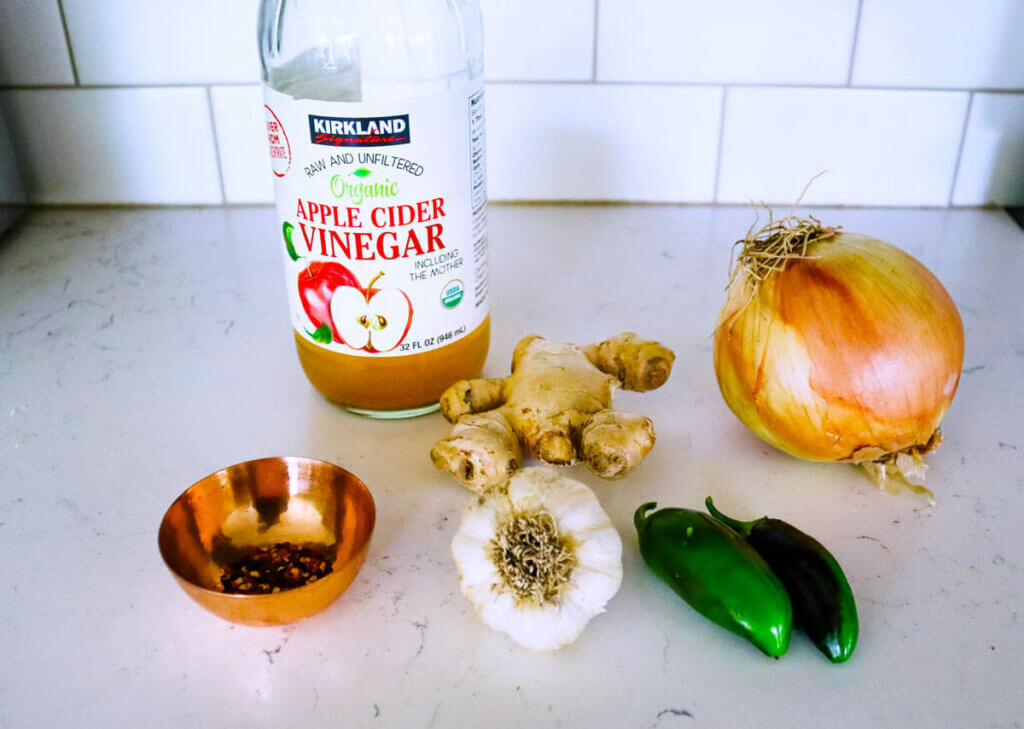
How to Make Fire Cider
Ingredients
There is no one fire cider recipe, as I mentioned above, you can mix and match ingredients based on what you have available to you and your own taste preferences. The base of it is usually onion, horseradish root, garlic, ginger root, hot pepper, and apple cider vinegar, with other herbs and roots tossed in based on preference and availability.
- Onion – Onions are high in Vitamin C, they’re anti-inflammatory, anti-cholesterol, anti-cancer and contain antioxidant properties. (Source)
- Garlic – “Allicin is an organosulfur compound found in garlic (Allium sativum), a food with known cardiovascular, and anticancer benefits. Allicin is released when garlic is chopped or chewed but is inactivated by cooking. It has demonstrated antiviral properties in vitro against rhinovirus and several other strains.” (Source) When participants of this study took 180mg of allicin daily, they reported 64% fewer colds, and symptom durations were reduced by 70%. (Source)
- Horseradish – Aids in improving the immune system and alleviating respiratory conditions. (Source) The German Commission E has approved horseradish for respiratory infections. Precautions – should not be used in pregnancy/nursing or those with thyroid issues. (Source)
- Ginger Root – Anti-inflammatory and warming properties that stimulate the circulatory system. (Source) (Source) Ginger root also has anti-viral properties for the flu (influenza) and cold viruses. [4] Use with caution if on blood thinning medications or if you have a blood clotting disorder.
- Hot Peppers – We’re after the capsaicin found in jalapenos and cayenne pepper, to name a few. Capsaicin improves the circulatory system, but it also has anti-viral and anti-microbial properties, as well as vitamin C. (Source) Use caution with using capsaicin-containing peppers consult a medical professional before use if pregnant, or nursing, and if you have blood clotting disorders or are on blood thinning medications, if you’re on blood pressure medications, stomach acid medication, and/or theophylline. (Source)
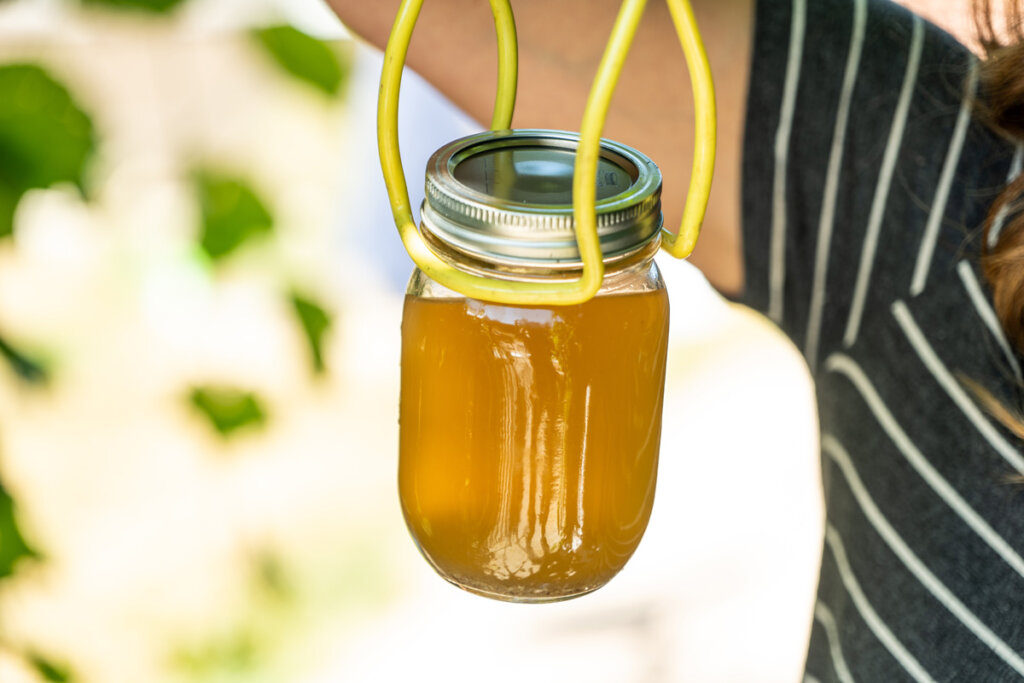
Additional Fire Cider Ingredients
You can also add ingredients like turmeric, echinacea, cinnamon, rosemary, and other herbs if you like. So like I said, it really is customizable.
Try mixing fire cider with homemade elderberry syrup so you get half and half and get the benefits of both herbal remedies at once.
You can even add it to homemade bone broth to get a double whammy of health benefits, so to speak. There are so many different variations on this recipe. It’s very adaptive to individuals and families.

Step-by-Step Directions
- Making fire cider is one of the easiest herbal remedies there is. Take a clean quart-sized Mason jar and place all of your chopped ingredients inside.
- Pour apple cider vinegar over the contents until completely submerged (you can get added benefits by using your own homemade apple cider vinegar, too!).
- Use a weight if needed to keep the contents under the vinegar, then place an airtight lid on and shake.
- Place in a cool dark location if possible, or keep it somewhere in your kitchen where you’ll remember to shake it daily.
- Allow it to steep for 2 to 4 weeks then strain out the solids.
- Stir in ¼ cup raw honey, if using.
How to Take Fire Cider
Take fire cider as needed. Some people will use a shot (1.5 ounces or slightly less than ¼ cup) once a day during cold or flu season while others take it several times a day when they feel symptoms coming on.
If taking fire cider as a shot is too flavorful for your pallet, you can also dilute the shot into an 8-ounce glass of water.
Tips & Tricks
- Feel free to swap out ingredients, omit ingredients, and change up amounts to make this your own.
- Remember to do your due diligence on researching each herb or item for any precautions or interactions when using it medicinally.
- Dilute the fire cider in water if it’s too potent to take straight.
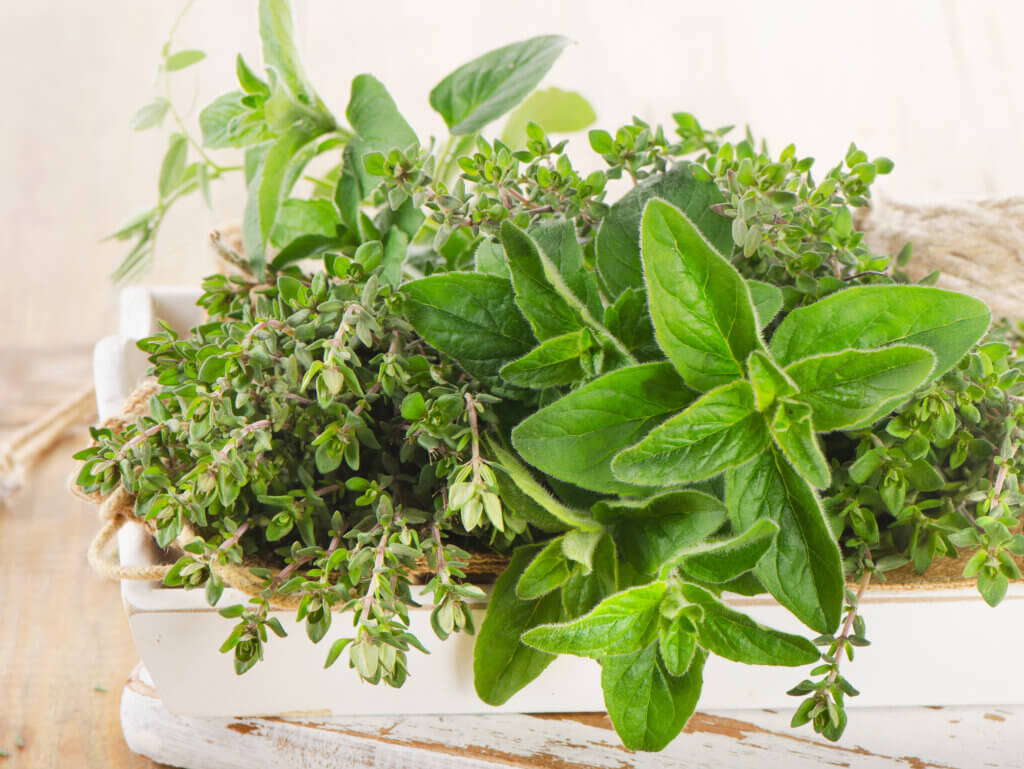
How to Get Started Using Herbs for Medicine
During my podcast interview with Rosemary, I asked her if she had any advice for those just getting started with using herbal remedies. Here was her response:
- Start by learning a few simple herbs, and try not to overwhelm yourself. She wrote a book called Medicinal Herbs: A Beginner’s Guide to Herbal Remedies which is a simple introduction, but it gives a very deep grounding.
- I also have a home study course that has been offered since the early 1980s. This is a great stepping stone for people. It’s a basic but very deep introduction. If you can find a local class, that’s also great.
- And the other way to get started is just to get 10 simple herbs (like in Melissa’s book, Hand Made) and start there. They can be the herbs in your kitchen cabinet or the herbs you’re growing in your herb garden. Do a little research on the medicinal properties of those herbs and then build your knowledge from there.
- Plant some yarrow, some basil, oregano, rosemary, and thyme, and do some research as you grow them. Get to know them through your senses and through intellectual study.
Other Herbal Posts You May Like
- Best Method for Drying Herbs (For Stronger Medicinal Properties)
- Best Medicinal Herbs to Grow From Seed
- Herbal Home Remedies for Cold and Flu
- Herbal Medicinal Tea (How to Make Your Own)
- Echinacea Tincture Recipe
- 5 Tips to Harvest Herbal Flowers for Medicinal Purposes
- 7 Natural Cough and Cold Herbal Remedies
- How to Use Herbs and Natural Remedies At Home
- Alternative Medicine & What to do if Your Medicine Isn’t Available
- The Link Between Honeybees & Plant Medicine
Did you make this recipe? If so, I’d love for you to leave a star rating on the recipe card below, then snap a photo and tag me on social media (@melissaknorris) so I can see!
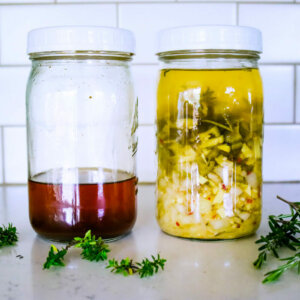
Traditional Fire Cider Recipe
Ingredients
- 1 medium onion diced
- 1/2 root horseradish diced
- 1/2 root ginger root diced
- 1/4 cup garlic diced or crushed
- 1/4 teaspoon cayenne pepper
- 1 Tablespoon rosemary or thyme, fresh (optional)
- 2 jalapenos diced (optional)
- 2 cups raw apple cider vinegar or enough to cover ingredients/fill the jar
- 1/4 cup raw honey or to taste (optional)
Instructions
- Take a clean, quart-sized Mason jar and place all of your chopped ingredients inside.
- Pour apple cider vinegar over the contents until completely submerged (you can get added benefits by using your own homemade apple cider vinegar, too!).
- Use a weight, if needed, to keep the contents under the vinegar, then place an airtight lid on the jar and shake.
- Place in a cool dark location to steep for two to four weeks. Shake daily.
- Strain out solids, then stir in 1/4 cup honey to the liquid.
- Take as suggested in the notes section below.
Notes
- Take fire cider as needed. A typical serving is 1.5 ounces (one shot) up to three times daily.
- If your fire cider is too spicy, you can increase the amount of honey added at the end.
- You can also dilute the fire cider into 8 ounces of water.
- Nutrition facts are impossible to calculate due to the fact most of the ingredients get strained out. The above calculations include the apple cider vinegar and honey only.
- Feel free to swap out ingredients, omit ingredients, and change up amounts to make this your own.
- Remember to do your due diligence on researching each herb or item for any precautions or interactions when using it medicinally.
